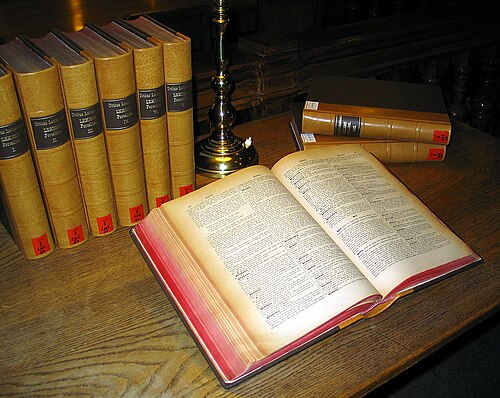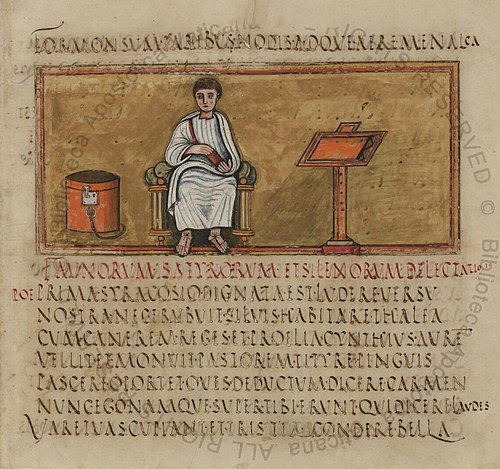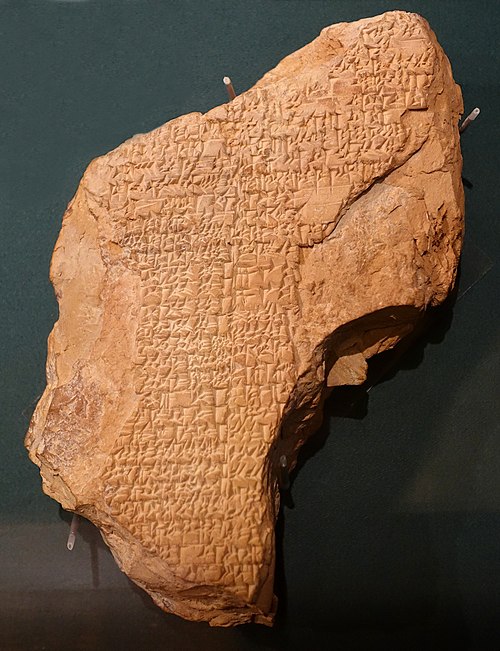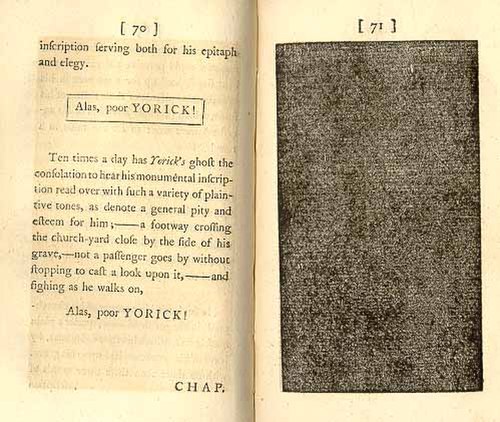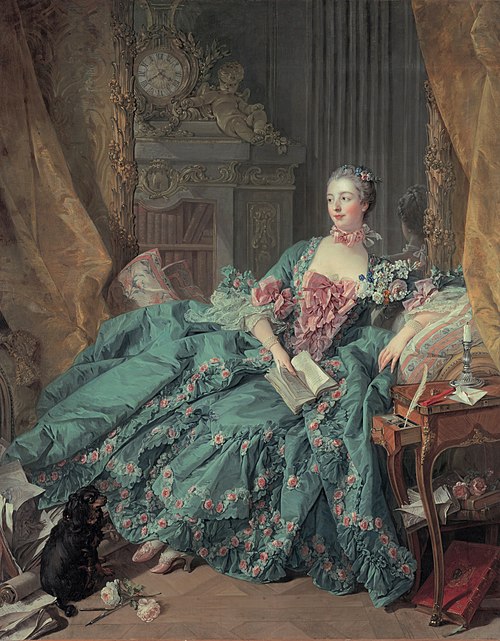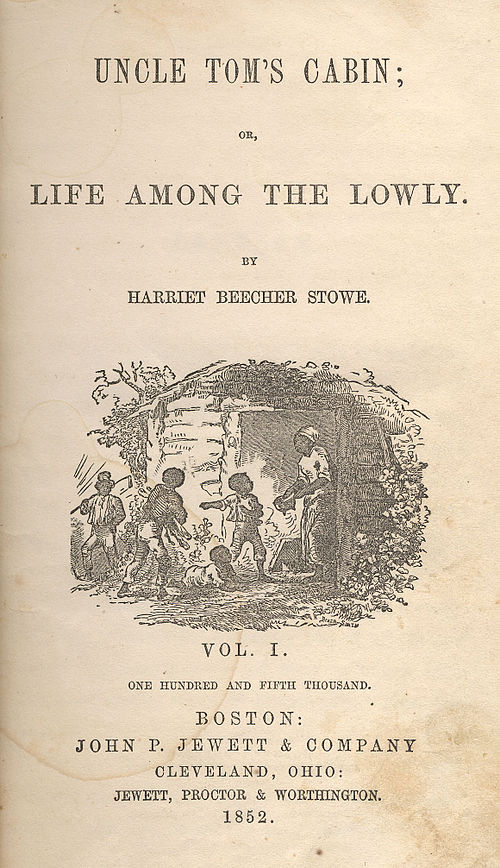Booknoun
A collection of sheets of paper bound together to hinge at one edge, containing printed or written material, pictures, etc.
Booknoun
A long work fit for publication, typically prose, such as a novel or textbook, and typically published as such a bound collection of sheets.
Booknoun
(heraldry) A heraldic representation of such an object, used as a charge; as in the arms of the universities of Oxford and Cambridge.
Booknoun
A major division of a long work.
Booknoun
(gambling) A record of betting (from the use of a notebook to record what each person has bet).
Booknoun
A convenient collection, in a form resembling a book, of small paper items for individual use.
Booknoun
(theatre) The script of a musical.
Booknoun
Records of the accounts of a business.
Booknoun
A long document stored (as data) that is or will become a book; an e-book.
Booknoun
(legal) A colloquial reference to a book award, a recognition for receiving the highest grade in a class (traditionally an actual book, but recently more likely a letter or certificate acknowledging the achievement).
Booknoun
(whist) Six tricks taken by one side.
Booknoun
(poker slang) four of a kind
Booknoun
(sports) A document, held by the referee, of the incidents happened in the game.
Booknoun
A list of all players who have been booked (received a warning) in a game.
Booknoun
(cartomancy) The twenty-sixth Lenormand card.
Bookverb
(transitive) To reserve (something) for future use.
Bookverb
(transitive) To write down, to register or record in a book or as in a book.
Bookverb
To record the name and other details of a suspected offender and the offence for later judicial action.
Bookverb
(sports) To issue with a caution, usually a yellow card, or a red card if a yellow card has already been issued.
Bookverb
To travel very fast.
Bookverb
To record bets as bookmaker.
Bookverb
To receive the highest grade in a class.
Bookverb
To leave.
Booknoun
A collection of sheets of paper, or similar material, blank, written, or printed, bound together; commonly, many folded and bound sheets containing continuous printing or writing.
Booknoun
A composition, written or printed; a treatise.
Booknoun
A part or subdivision of a treatise or literary work; as, the tenth book of "Paradise Lost."
Booknoun
A volume or collection of sheets in which accounts are kept; a register of debts and credits, receipts and expenditures, etc.; - often used in the plural; as, they got a subpoena to examine our books.
Booknoun
Six tricks taken by one side, in the game of bridge or whist, being the minimum number of tricks that must be taken before any additional tricks are counted as part of the score for that hand; in certain other games, two or more corresponding cards, forming a set.
Booknoun
a written version of a play or other dramatic composition; - used in preparing for a performance.
Booknoun
a set of paper objects (tickets, stamps, matches, checks etc.) bound together by one edge, like a book; as, he bought a book of stamps.
Booknoun
a book or list, actual or hypothetical, containing records of the best performances in some endeavor; a recordbook; - used in the phrase one for the book or one for the books.
Booknoun
the set of facts about an athlete's performance, such as typical performance or playing habits or methods, that are accumulated by potential opponents as an aid in deciding how best to compete against that athlete; as, the book on Ted Williams suggests pitching to him low and outside.
Booknoun
same as book value.
Booknoun
the list of current buy and sell orders maintained by a stock market specialist.
Booknoun
the purchase orders still outstanding and unfilled on a company's ledger; as, book to bill ratio.
Bookverb
To enter, write, or register in a book or list.
Bookverb
To enter the name of (any one) in a book for the purpose of securing a passage, conveyance, or seat; to reserve{2}; also, to make an arrangement for a reservation; as, to be booked for Southampton; to book a seat in a theater; to book a reservation at a restaurant.
Bookverb
To mark out for; to destine or assign for; as, he is booked for the valedictory.
Bookverb
to make an official record of a charge against (a suspect in a crime); - performed by police.
Booknoun
a written work or composition that has been published (printed on pages bound together);
Booknoun
physical objects consisting of a number of pages bound together;
Booknoun
a record in which commercial accounts are recorded;
Booknoun
a number of sheets (ticket or stamps etc.) bound together on one edge;
Booknoun
a compilation of the known facts regarding something or someone;
Booknoun
a major division of a long written composition;
Booknoun
a written version of a play or other dramatic composition; used in preparing for a performance
Booknoun
a collection of rules or prescribed standards on the basis of which decisions are made;
Booknoun
the sacred writings of Islam revealed by God to the prophet Muhammad during his life at Mecca and Medina
Booknoun
the sacred writings of the Christian religions;
Bookverb
record a charge in a police register;
Bookverb
arrange for and reserve (something for someone else) in advance;
Bookverb
engage for a performance;
Bookverb
register in a hotel booker
Booknoun
a written or printed work consisting of pages glued or sewn together along one side and bound in covers
Booknoun
a literary composition that is published or intended for publication as a book
Booknoun
a main division of a literary work or of the Bible
Booknoun
the libretto of a musical or opera, or the script of a play.
Booknoun
used to refer to studying
Booknoun
the telephone directory for the area in which someone lives
Booknoun
a magazine
Booknoun
an imaginary record or list (often used to emphasize the comprehensiveness of someone's actions or experience)
Booknoun
a bound set of blank sheets for writing in
Booknoun
a set of records or accounts
Booknoun
a bookmaker's record of bets accepted and money paid out.
Booknoun
the notebook in which a referee writes the names of players who are cautioned for foul play
Booknoun
the first six tricks taken by the declarer in a hand of bridge, after which further tricks count towards fulfilling the contract.
Booknoun
a set of tickets, stamps, matches, samples of cloth, etc., bound together
Bookverb
reserve (accommodation, a place, etc.); buy (a ticket) in advance
Bookverb
reserve accommodation for (someone)
Bookverb
register one's arrival at a hotel
Bookverb
engage (a performer or guest) for an event
Bookverb
have all places reserved; be full
Bookverb
make an official note of the personal details of (a person who has broken a law or rule)
Bookverb
(of a referee) note down the name of (a player) who is cautioned for foul play
Bookverb
leave suddenly
Bookverb
move quickly; hurry
Book
A book is a medium for recording information in the form of writing or images, typically composed of many pages (made of papyrus, parchment, vellum, or paper) bound together and protected by a cover. The technical term for this physical arrangement is codex (plural, codices).
Noveladjective
new, original, especially in an interesting way
Novelnoun
(obsolete) A novelty; something new.
Novelnoun
A work of prose fiction, longer than a novella.
Novelnoun
(historical) A fable; a short tale, especially one of many making up a larger work.
Novelnoun
A new legal constitution in ancient Rome.
Noveladjective
Of recent origin or introduction; not ancient; new; hence, out of the ordinary course; unusual; strange; surprising.
Novelnoun
That which is new or unusual; a novelty.
Novelnoun
News; fresh tidings.
Novelnoun
A fictitious tale or narrative, longer than a short story, having some degree of complexity and development of characters; it is usually organized as a time sequence of events, and is commonly intended to exhibit the operation of the passions, and often of love.
Novelnoun
A new or supplemental constitution. See the Note under Novel, a.
Novelnoun
a extended fictional work in prose; usually in the form of a story
Novelnoun
a printed and bound book that is an extended work of fiction;
Noveladjective
of a kind not seen before;
Noveladjective
pleasantly novel or different;
Novel
A novel is a relatively long work of narrative fiction, typically written in prose and published as a book. The present English word for a long work of prose fiction derives from the Italian: novella for , , or , itself from the Latin: novella, a singular noun use of the neuter plural of novellus, diminutive of novus, meaning .Some novelists, including Nathaniel Hawthorne, Herman Melville, Ann Radcliffe, John Cowper Powys, preferred the term to describe their novels.

















